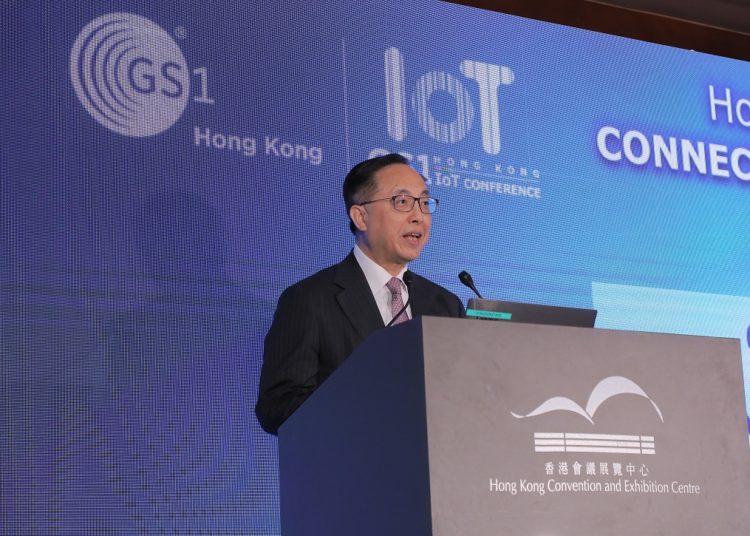The rapid advancement of IoT technologies is creating endless possibilities for enterprises and the government in Hong Kong.
This was the message of Nicholas W. Yang, Secretary for Innovation and Technology when he graced the opening of the Hong Kong IoT Conference held at the Hong Kong Convention and Exhibition Center on June 14.
The innovation chief said the HKSAR Government, business and community sectors are all playing an integral part in the ecosystem to catalyze more localized IoT applications and realize the next chapter of economic growth.
“We are also pushing ahead a number of key infrastructure projects to support such developments. These include installation of Multi-functional Smart Lampposts, provision of electronic identity or eID to all Hong Kong residents starting in 2020, promoting the use of Building Information Modelling, and the deployment of a Common Spatial Data Infrastructure (CSDI),” he said.
“Let us work together to embrace and leverage these new technologies to better serve the Hong Kong public,” he added.
“It is important for every company to possess the professional skills and strategy to understand and make use of those data, allowing the company to make data-driven business decisions,” he said.
The ecosystem of standards, devices and services, however, is fragmented, leading professionals to believe that it is slowing enterprise IoT deployments.
Anna Lin, Chief Executive of GS1 Hong Kong, emphasized the importance of open, global standards, saying that they are a “key enabler of IoT that connects data visibility to process automation.”
“It enables companies and organisations to trace the movement of objects, to perform data analytics and extract consumer insights, to drive more effective, timely business decisions, and to enhance customer experience,” she added.
GS1 Hong Kong, for example, has introduced a number of IoT solutions powered by EPCIS-based IoT platform ezTRACK, including REAL Visibility, Smart Traceability, Smart Kiosk, and cold Chain Sensor Network.
It has also introduced the Smart Retail Supply Chain & Big Data Analytics course for industry professionals to build their data talent and identify the real value through analytics.
GS1 is a not-for-profit, industry-led global organization dedicated to the design and implementation of global standards to improve the efficiency of supply and demand chains. Headquartered in Brussels, Belgium, GS1 has over 110 national chapters in 150 countries.
In Hong Kong, its mission is to empower business to grow based on our global standards.



